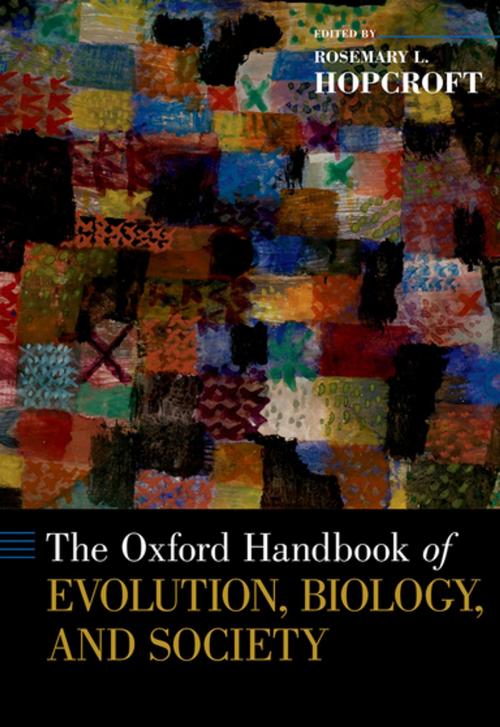The Oxford Handbook of Evolution, Biology, and Society
Nonfiction, Social & Cultural Studies, Social Science, Sociology, Urban, Anthropology, Science & Nature, Science, Biological Sciences| Author: | ISBN: | 9780190299330 | |
| Publisher: | Oxford University Press | Publication: | March 9, 2018 |
| Imprint: | Oxford University Press | Language: | English |
| Author: | |
| ISBN: | 9780190299330 |
| Publisher: | Oxford University Press |
| Publication: | March 9, 2018 |
| Imprint: | Oxford University Press |
| Language: | English |
Evolution, biology, and society is a catch-all phrase encompassing any scholarly work that utilizes evolutionary theory and/or biological or behavioral genetic methods in the study of the human social group, and The Oxford Handbook of Evolution, Biology, and Society contains an much needed overview of research in the area by sociologists and other social scientists. The examined topics cover a wide variety of issues, including the origins of social solidarity; religious beliefs; sex differences; gender inequality; determinants of human happiness; the nature of social stratification and inequality and its effects; identity, status, and other group processes; race, ethnicity, and race discrimination; fertility and family processes; crime and deviance; and cultural and social change. The scholars whose work is presented in this volume come from a variety of disciplines in addition to sociology, including psychology, political science, and criminology. Yet, as the essays in this volume demonstrate, the potential of theory and methods from biology for illuminating social phenomena is clear, and sociologists stand to gain from learning more about them and using them in their own work. The theory focuses on evolution by natural selection, the primary paradigm of the biological sciences, while the methods include the statistical analyses sociologists are familiar with, as well as other methods that they may not be familiar with, such as behavioral genetic methods, methods for including genetic factors in statistical analyses, gene-wide association studies, candidate gene studies, and methods for testing levels of hormones and other biochemicals in blood and saliva and including these factors in analyses. This work will be of interest to any sociologist with an interest in exploring the interaction of biological and sociological processes. As an introduction to the field it is useful for teaching upper-level or graduate students in sociology or a related social science.
Evolution, biology, and society is a catch-all phrase encompassing any scholarly work that utilizes evolutionary theory and/or biological or behavioral genetic methods in the study of the human social group, and The Oxford Handbook of Evolution, Biology, and Society contains an much needed overview of research in the area by sociologists and other social scientists. The examined topics cover a wide variety of issues, including the origins of social solidarity; religious beliefs; sex differences; gender inequality; determinants of human happiness; the nature of social stratification and inequality and its effects; identity, status, and other group processes; race, ethnicity, and race discrimination; fertility and family processes; crime and deviance; and cultural and social change. The scholars whose work is presented in this volume come from a variety of disciplines in addition to sociology, including psychology, political science, and criminology. Yet, as the essays in this volume demonstrate, the potential of theory and methods from biology for illuminating social phenomena is clear, and sociologists stand to gain from learning more about them and using them in their own work. The theory focuses on evolution by natural selection, the primary paradigm of the biological sciences, while the methods include the statistical analyses sociologists are familiar with, as well as other methods that they may not be familiar with, such as behavioral genetic methods, methods for including genetic factors in statistical analyses, gene-wide association studies, candidate gene studies, and methods for testing levels of hormones and other biochemicals in blood and saliva and including these factors in analyses. This work will be of interest to any sociologist with an interest in exploring the interaction of biological and sociological processes. As an introduction to the field it is useful for teaching upper-level or graduate students in sociology or a related social science.















